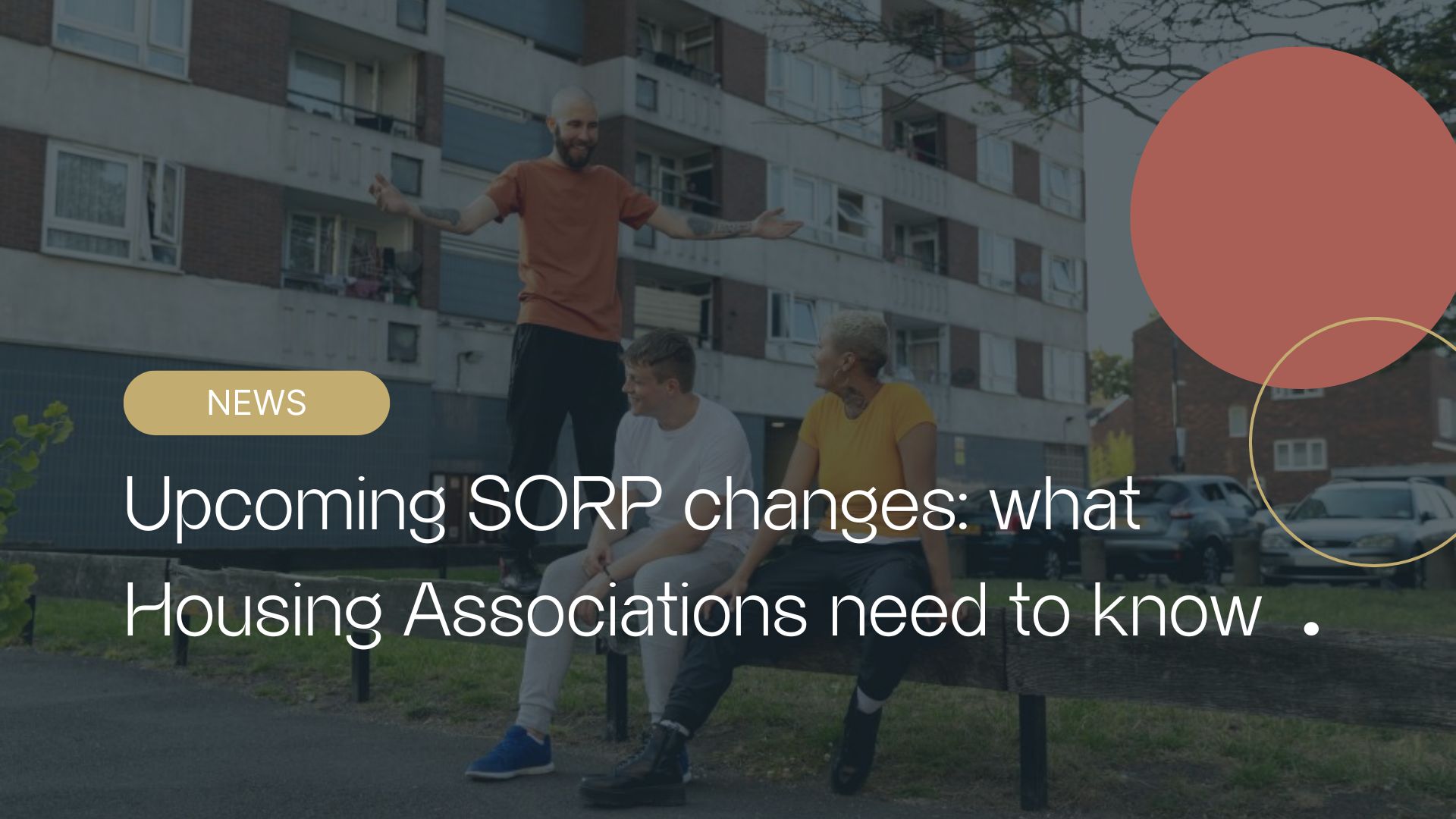
The Charities SORP changes are the biggest accounting changes for Housing Associations in years.
Upcoming SORP changes: what Housing Associations need to know.
The Charities Statement of Recommended Practice (SORP) is undergoing a revamp to bring it into line with the Financial Reporting Standard (FRS 102). The changes are set to come into effect for accounting periods starting on or after 1st January 2026, but they are currently out for a 12-week consultation, as announced by the ICAEW.
Though the update will affect a variety of charitable organisations, it is likely to have a particularly significant impact on Housing Associations, especially regarding lease accounting and revenue recognition.
Here we take a closer look at what is changing, what it means for Housing Associations & how finance teams can get ready for the transition.
Why is SORP being given an update?
The Charities SORP is a framework for how charities prepare and present their accounts, in line with FRS102. Since FRS102 has just been revised, the SORP has to be updated to reflect those changes.
This latest revision aims to make financial reporting more straightforward, more transparent, and more in line with international accounting standards. For Housing Associations, which often register as charitable providers, this means having another look at how leases, grant income and service income are accounted for in financial statements.
Key areas that are going to be affected
- Lease Accounting
One of the big changes comes from FRS102 mirroring IFRS 16’s approach to leases. Under the new model, almost all leases will now appear on the balance sheet, meaning organisations will need to acknowledge not just the right to use assets but also a lease liability.
For Housing Associations, this is particularly tricky, as they often hold a large number of lease agreements on properties, land, equipment… all of which will now require more detailed reporting. The shift will affect key ratios like gearing and asset valuations, which could affect loan covenants & performance metrics.
Finance teams will need to review all their existing lease contracts, identify which fall under the new rules, and determine how to track them in their finance system.
However, many current finance systems used by Housing Associations are not fully equipped to handle IFRS 16 requirements, such as automated recognition of right-of-use assets or lease liabilities. This limitation can make compliance difficult and increase manual workloads. If your current system doesn’t support these features, it’s essential to consider your options well before this changes come into place.
- Revenue Recognition
The revenue recognition rules have been tweaked to ensure income is matched with the work you are performing—a substantial change that should help with accounting for rental income, service charges, and grant funding for Housing Associations. This means you might need to rethink when you record income (timing is everything here!).
Charity grants and donations on a condition-first basis should wait until those conditions are met before they are recognised, but this will likely require you to update your accounting procedures and ERP setup.
- Enhanced Disclosures
You can expect to be asked for a lot more detail in your account’s notes in the future, especially anything around the judgement calls and estimates you make when applying these new lease and income rules. This means charities and Housing Associations will have to get a bit more detailed in their accounting.
If you are lucky enough to have an ERP system that can auto-report the disclosures bit for you, that will make life easier, but you will still need to review the templates and data sources to ensure you are covering everything.
The consultation
The 12-week consultation was launched last month, and charities and Housing Associations can comment on the proposed changes. ICAEW and the Charities SORP Committee want to hear how the changes will affect day-to-day reporting and system implementation.
Organisations that want to share their views should review the consultation documents published by ICAEW and respond by early next year.
So, what now?
Although the changes will not be effective until 2026, early preparation is key. Housing Associations should start planning now by:
- Reviewing lease contracts to see how they will be treated under the new accounting model.
- Evaluating current revenue recognition policies to make sure they align with the updated FRS102 and SORP guidance.
- Assessing ERP readiness, confirming their finance systems can handle on-balance-sheet leases, deferred income recognition and IFRS 16 requirements.
- Identifying gaps in existing systems that may prevent compliance and exploring short-term solutions or add-on tools to bridge those gaps.
- Talking to auditors and advisors to understand how these changes will impact reporting and compliance.
- Booking time for testing and training so finance teams are ready when the new requirements come in.
By getting ahead of the game, Housing Associations can reduce the risk of disruption and ensure a smooth transition when the new SORP becomes mandatory.
If your current finance system does not support IFRS 16, now is the time to address it. Upgrading or supplementing your system will save time and reduce compliance risk once the new SORP becomes effective.
How are we supporting our customers in Arribatec?
As a major provider of ERP solutions to the Housing Association sector, we are following the SORP consultation and its implications for finance systems. Our teams are already reviewing the FRS102 changes to ensure that our preferred ERP platform, Unit4, is fully compliant and ready for the updated requirements.
We know every organisation is different. That is why we are encouraging our Housing Association customers to contact any questions or concerns about implementing the revised SORP in their finance systems. Our consultants are available to discuss system readiness, data structures and any configuration changes that may be needed before 2026.
The Charities SORP changes are the biggest accounting changes for Housing Associations in years. While lease accounting and revenue recognition will add some complexity, they also offer an opportunity to improve transparency and consistency in reporting.
By preparing early and reviewing your system, Housing Associations can be ready for the transition and meet regulatory and stakeholder requirements.
Contact us if you would like to talk about how this will affect your ERP system or reporting setup.





